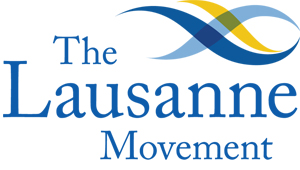Growing Fruit on Someone Else’s Tree
June 5th, 2012I just returned from the Lausanne Consultation on Global Theological Education held in Boston. The dream, which began over a year ago, was to bring together seminary presidents from all over the world to discuss the implications of the emergence of a vibrant global church for theological education.
 This was the first big event for me as the chair of Theology Working Group of Lausanne. Our original dream was to bring together 20 Presidents from North America and 20 Presidents from the Majority World. However, the event expanded beyond our dreams and we ended up with over thirty Presidents from the Majority World and over thirty from the North America. The number of Presidents from overseas actually outnumbered those from North America. It was an event without precedent. We also invited the key leaders of the accrediting associations, including Dan Ayleshire (Association of Theological School of N. America), Paul Sanders and Paul Bowers (International Director of ICETE – International Council for Evangelical Theological Education, and associate director), Paul Sywulka (AETAL – Evangelical Theological Association for Latin America), Bernard Ott (EEAA, European Evangelical Accrediting Association), and Therea Roco Lua, director of Accreditation for ATA (Asia Theological Association). Overseas Council (David Baer) and Langham Partnership (Chris Wright) were also in attendance.
This was the first big event for me as the chair of Theology Working Group of Lausanne. Our original dream was to bring together 20 Presidents from North America and 20 Presidents from the Majority World. However, the event expanded beyond our dreams and we ended up with over thirty Presidents from the Majority World and over thirty from the North America. The number of Presidents from overseas actually outnumbered those from North America. It was an event without precedent. We also invited the key leaders of the accrediting associations, including Dan Ayleshire (Association of Theological School of N. America), Paul Sanders and Paul Bowers (International Director of ICETE – International Council for Evangelical Theological Education, and associate director), Paul Sywulka (AETAL – Evangelical Theological Association for Latin America), Bernard Ott (EEAA, European Evangelical Accrediting Association), and Therea Roco Lua, director of Accreditation for ATA (Asia Theological Association). Overseas Council (David Baer) and Langham Partnership (Chris Wright) were also in attendance.
The event spanned four days and discussed a wide range of issues including the nature of partnerships, the role of accrediting bodies in fostering theological education globally, the disparity of resources between the West and much of the Majority World, issues of access and need, economic models for theological education, and so forth. It was the first time this many Presidents from around the world were all together in one room to talk about so many issues which are crucial to the future of theological education. It was also very meaningful to have two of Asbury’s global partners in the room, Douglas Carew of Africa International University in Nairobi and Theresa Roco Lua of the Asia Graduate School of Theology in the Philippines.
I had the honor of giving the opening plenary address on Tuesday evening which can be found at http://conversation.lausanne.org/en/resources/detail/12418 I focused on the twin issues of the emergence of Majority World Christianity as well as the special challenges facing North America as a re-emerging mission field in a post-Christendom context.
I am so thankful for the Lausanne movement for helping to facilitate this event. One of the great things about Lausanne is that it is not an organization. It does not represent any church or school or any other organization. Lausanne is a networking movement which enables people to come together for strategic discussions, planning and collaboration. Doug Birdsall is the executive director of the Lausanne movement and a personal friend for many years. He was the driving force behind the Cape Town 2010 Lausanne event that brought together thousands of Christians in what has been called the most representative gathering of the global church in history. I asked Doug once about the secret of Lausanne’s success dating back to John Stott and the Lausanne covenant forged in Lausanne in 1974. I will never forget his reply: “Lausanne is not an organization, it is a movement. The success of Lausanne,” Doug said, “has been the commitment to grow fruit on someone else’s tree.” I have never forgotten that line. If there is any future in global theological collaboration, it will largely be determined by how deeply we are committed to growing fruit on someone else’s tree. In short, we must be kingdom focused. The kingdom must always trump denominational, organizational and institutional loyalties.
Feedback
Please fill out the form below if you would like to provide feedback to Dr. Tennent concerning this blog entry.


